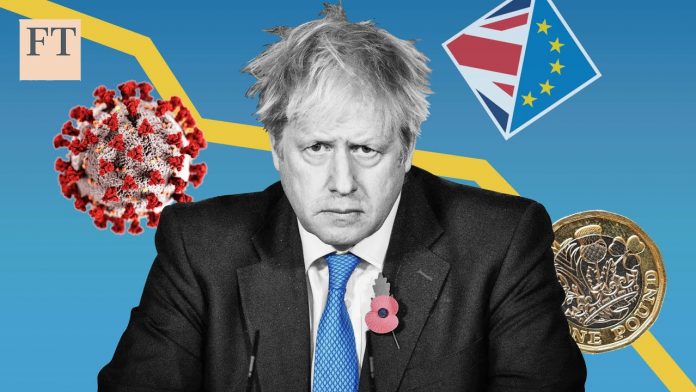Mr Speaker, we will do whatever it takes to get this country through the crisis. Four weeks ago Boris Johnson had a plan. He had a plan for Covid, he had a plan for the economy, and he even had a plan for his own party. The propose was to tread a middle path through the coronavirus crisis, impeding just as much of their own economies open as possible and clamping down where it became necessary for health reasons.
Schools would remain open. Occupations would stay open. When there was a flareup in a neighbourhood region that region would face tougher controls, but the country would remain as open as possible. In the last few days, nonetheless, he’s had to waste the design and foist a national lockdown and increase his furlough scheme till the end of next March. So now is the time to take action, because there is no alternative. Changing course in response to new circumstances is a perfectly reasonable thing to do in a crisis, but the problem for Boris Johnson is he’s bordered his original contrive in terribly aggressive political rant in which he rubbished foes calling for exactly what he’s done now.
This is our opportunity to keep things becoming, to keep … The repercussion is that he now glances behind the swerve, they’re able to say he doesn’t know what he was doing, and it’s also uncovered crackings within his own government and his own party. Boris Johnson’s chancellor, Rishi Sunak, genuinely didn’t want to go back into full lockdown and certainly didn’t want to have to pay for a furlough till March. But the cabinet of ministers returned him into it.
Key decisions are being taken without sure-fire key personnel. Dominic Raab, the minister for foreign affairs and the man whose official title is first minister, reaching him Boris Johnson’s deputy, didn’t even know that a new lockdown was being considered. He was sent out to defend the existing policy on the broadcast media even as a meet was taking place to change it, and he’s rightly fierce about that. So leading player are being kept out of the conversation.
And the consequence now is it begins to look like the prime minister isn’t seeing what’s coming down the road and is having to scurry every time to catch up. The chancellor, the overwhelmingly and outstandingly popular figure in his government, has now presented around four different wintertime financial programs in the infinite of a month. That’s not a good search, even in a time of crisis. Which makes us on to point two, the economy.

For nonetheless bad things have got so far, there’s no reason to think they’re going to get any better soon. Many of the plans he wants to bring forward are going onto the back burner. Rishi Sunak and the Conservative party are going to want, at some target, to stop cutting the deficit and even the debt that they have run up in tackling the crisis.
And that’s going to be a major challenge for a Republican gathering which is now divided between those people who don’t like austerity and want to keep spending, particularly those people in some of the new northern sits that the Reactionary gained at the last election, and those more traditional Conservatives, the financial hawks who believe you have to get your budget back into balance. And that’s going to test how strong the Conservative party’s unity really is. And then we come to the Bword Brexit the policy which Boris Johnson would once have seen as his signature accomplishment. By the end of this year the UK is going to be out of the European union countries and its transition period, with or without a slew. The peculiars probably still favour a lot, but even with one there’s going to be a great deal of financial dislocation.
Come January, we are capable of identify major tailbacks of lorries at ports, certain shortages in some things. We could see disruption. It’s another thing that the public may well start to turn on Boris Johnson about and denounce him for. So Brexit, which might have once had his full attention, is now going to be just one more crisis he has to attend to in the beginning of the year.
Underpinning all of Boris Johnson’s challenges is a simple fact. The Conservative party has lost its ability to pull together in times of predicament. Its MPs have too often came stolen on plot and debates. They’ve got into the attire of overthrowing presidents the moment things get difficult. And there are departments within the Conservative party grades which are becoming more and more apparent, between traditional radicals and the interventionists, between the southern MPs and the northern MPs, between the globalists and the nationalists. And Boris Johnson is trying to pull all these filaments together and keep the Conservative party feasible as it leaders into what is likely to be a awfully, very difficult year economically. Many people in Britain are looking to 2021 and hoping that it’s better than 2020. That may be a fond hope for Boris Johnson.































